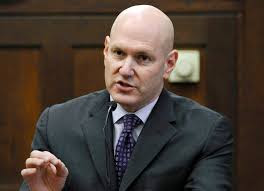According
to studies, it has been projected that around 30 million individuals
living in the United States are severely affected by overeating and
unhealthy eating habits. However, when it comes to seeking awareness
of unhealthy eating practices, most of us ignore it. And the fact is
that it can have a lethal impact on your mental health.
Some
common myths associated with eating disorders
Dr. Keith Ablow
explains
that eating disorders are not something that you voluntarily choose.
An eating disorder has a considerable impact on mental wellness as
well as the physical well being of an individual. Anybody can develop
an eating disorder. Sometimes, it can be very serious and fatal. This
disorder can severely affect a person’s eating habits and trigger
various other physical diseases.
But
with effective therapy sessions, eating disorders can be effectively
treated and a person can experience a healthy well being. In case you
are facing eating disorders, it is best that you visit a
psychotherapist as soon as possible and seek medical attention as
this disorder is 100% treatable.
Dr.
Ablow tells us that we tend to blame our partners, parents, and
spouses for developing an eating disorder. The exact reason for
developing this attitude is not known, but all eating disorders are a
potential result of sociocultural, psychological, and biological
issues.
Who
should worry?
Different
people will experience different types and intensities of eating
disorders. However, there are people who are more prone to this
ailment. Below is a list that tells who is at risk of developing an
eating disorder.
- A habit of consuming alcohol
- Genetics of obesity
- Perfectionism
- Depression and anxiety
- Problems in expressing emotions
- Sexual abuse
- Physical abuse
- Excessive aggression
- Excessive dieting
- Social media’s unrealistic depiction of having a perfect body
- Low confidence
- Low self-esteem
What
are the warning signs?
The
warning signs of eating disorders are mentioned below:
- Fear of becoming obese
- Urge to go to the washroom immediately after eating
- Checking weight again and again
- Gastric problems
- Lethargy
- Fatigue and dizziness
- Irritable mood
- Constant mood swings
- Irregular menstrual cycle
- Bradycardia
What
are the different types of eating disorders? There
are a variety of types pertaining to eating disorders. These are
mentioned below:
- Anorexia Nervosa (AN)
- Bulimia Nervosa (BN)
- Binge Eating Disorder (BED)
Keith Ablow, MD counsels and coaches individuals across the United States and around the world in-person, via Skype or by telephone. Contact him by emailing info@keithablow.com or calling 978-462-1125.




